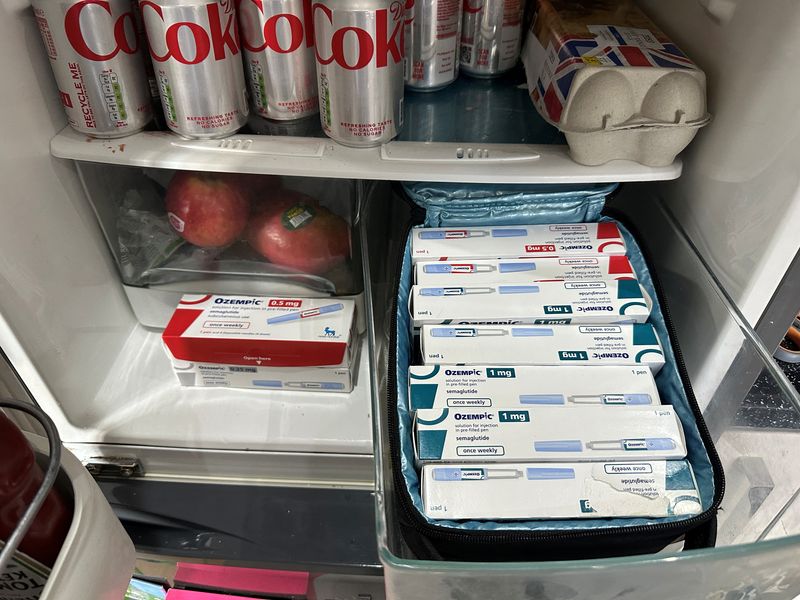By Ludwig Burger and Eva Mathews
(Reuters) - Novo Nordisk (NYSE:NVO) will ration starter kits of Ozempic in Europe and reduce supplies of another diabetes drug, Victoza, to prioritise producing Ozempic, which has seen a surge in demand from people using it to lose weight.
Ozempic contains semaglutide, an ingredient in Novo's hugely popular anti-obesity drug Wegovy. Ozempic is not officially approved to treat obesity, but that hasn't held back demand.
According to a note to healthcare professionals from Novo and the European Medicines Agency (EMA), the Danish drugmaker will "temporarily reduce the supply of Victoza" in order to increase the supply of Ozempic.
Intermittent Ozempic shortages are expected throughout 2024, while Victoza shortages are expected at least until the second quarter of 2024, according to the statement on the EMA's website.
The shortage of both would "deteriorate" during the remainder of this year, Novo warned.
Both Victoza and Ozempic are injections based on the substance class of GLP-1 receptor agonists, but only the latter has been associated with considerable weight loss and suppression of appetite, in addition to regulating insulin production.
The active ingredient in Victoza is known as liraglutide.
"No new patients should be started on Victoza until at least Q2 2024 when supply is expected to normalise," Novo urged doctors in the document.
It would also limit the supply of the 0.25-mg starting dose of Ozempic to prioritise patients already on the weekly therapy over prospective new patients, a strategy that Novo has already used in the United States to manage demand for Wegovy that has far exceeded supplies.
In a bid to manage side effects and get the body used to the gut-hormone drugs, both Ozempic and Wegovy are initially given at low starter doses and the concentration of active ingredient per injection is increased over months in a practice known as dose escalation.
"It is recommended to limit initiations of new patients (on Ozempic) during the shortage and until the supply situation improves which is expected in Q1 2024," Novo said.
It also told doctors to consider other injectable GLP-1 drugs or "other suitable alternatives" where Ozempic or Victoza are not available for patients.
In a sign of Europe's scramble for Ozempic, Germany's drugs regulator is considering banning Ozempic exports, a move that several fellow EU members such as France and Austria have already imposed.
Several countries including Britain, Belgium and Germany have temporarily banned or strongly discouraged its use for weight loss to secure availability for diabetics but enforcement has proven difficult.
Novo's launch of Wegovy in Britain, Germany, Norway and Denmark, has so far done little to temper the clamour in Europe for Ozempic, as volumes of Wegovy have been limited due to production bottlenecks.
Novo, which has earmarked $6 billion to boost production in Denmark, said earlier this month the industry was far from being able to produce enough weight-loss drugs to meet global demand.

Eli Lilly (NYSE:LLY)'s drug tirzepatide, also known as Mounjaro, has shown even greater weight-loss potential in trials than Wegovy, but the medium-term supply outlook for that drug in Europe is as yet uncertain.
The EU drugs regulator has recommended approval but the EU Commission's final word is still pending.